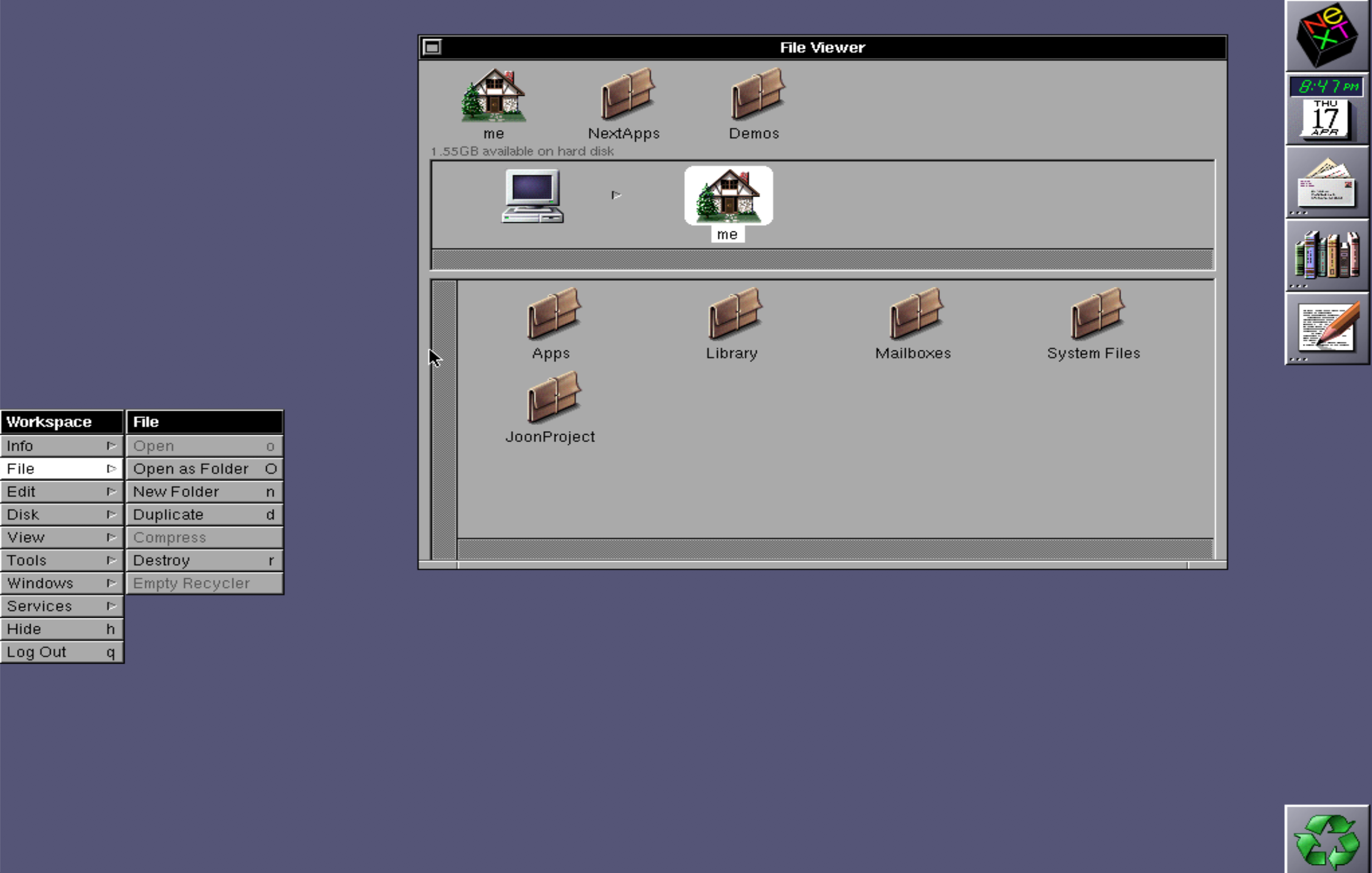Ruby 2.0 – Prepending Module
NeXT Me

Swagger with Docker
Flush ActiveRecord database in Rails app
Ruby Array
Was curious which is faster.
Rehearsal ----------------------------------------------
<< 0.099701 0.017560 0.117261 ( 0.117427)
push 0.110768 0.007844 0.118612 ( 0.118719)
------------------------------------- total: 0.235873sec
user system total real
<< 0.063531 0.002646 0.066177 ( 0.066220)
push 0.099184 0.004992 0.104176 ( 0.104228)
Code:
require 'benchmark'
Benchmark.bmbm(10) do |bm|
bm.report('<<') do
a = []
1000000.times do
a << 'foo'
end
end
bm.report('push') do
a = []
1000000.times do
a.push 'foo'
end
end
end
My Language Ranking Based on Coolness
With so many sites measuring programming language popularity, here’s the coolness, not popularity ranking of languages ranking by me. This is my PERSONAL opinion.
1. Ruby – need I say more? 😉
2. Objective-C
3. Go
4. C, not C++
5. Coffeescript – yes, I said it, ok?
6. Haskell
7. R
8. Swift
Install Ruby 2.3.1 from Source on Ubuntu 16.04
Execute this as the root user. If not, you can always add sudo. Here’s the script:
#!/bin/bash
set -e
apt-get update
apt-get install -y curl build-essential libreadline-dev \
libffi-dev zlib1g-dev openssl vim \
libncurses5-dev libcurl4-openssl-dev \
libgdbm-dev libqdbm-dev libssl-dev
apt-get autoremove && apt-get autoclean
curl -O https://cache.ruby-lang.org/pub/ruby/2.3/ruby-2.3.1.tar.gz
tar xvzf ruby-2.3.1.tar.gz
cd ruby-2.3.1
./configure
make && make install
cd ..
rm -rf ruby-2.3.1*
echo "gem: --no-ri --no-rdoc
install: --no-ri --no-rdoc
update: --no-ri --no-rdoc" > /usr/local/etc/gemrc
gem install bundler pry interactive_editor
Setting Up a React Project
Simple Web Server with Ruby or Python
I was developing a Javascript app and wanted to run a web server pointing to current directory.
Using Ruby
A simple script to start a WEBrick server. You can modify the root directory to a subfolder if you’d like. I named this script “server” with chmod +x so I can run it with ./server
#!/usr/bin/env ruby
require 'webrick'
server = WEBrick::HTTPServer.new(Port: 8000, DocumentRoot: ".")
Signal.trap('INT') { server.shutdown }
server.start
Python
A simple command using python -m SimpleHTTPServer
